It is not nearly always that employees put their heart and soul into everything that they do. There are instances wherein they slack off and fail to do their…
continue reading
49+ Sample Official Resignation Letters
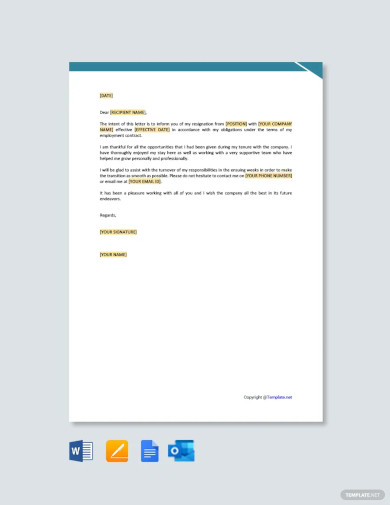
Official Resignation Letter Template
download now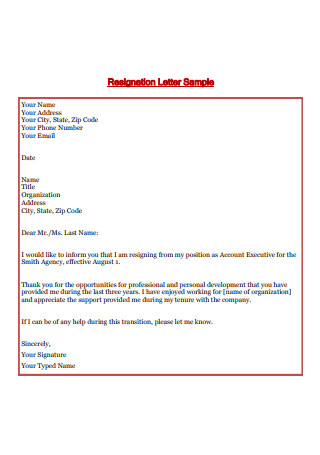
Resignation Letter Sample
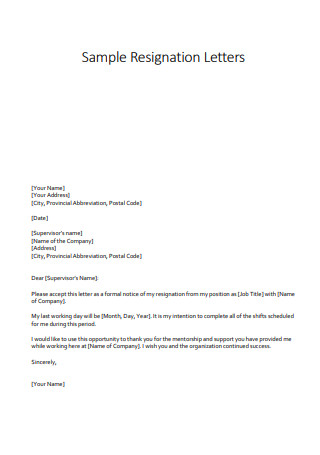
Sample Resignation Letters
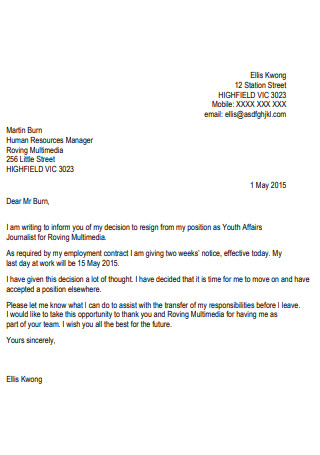
Elected Official Resignation Letter
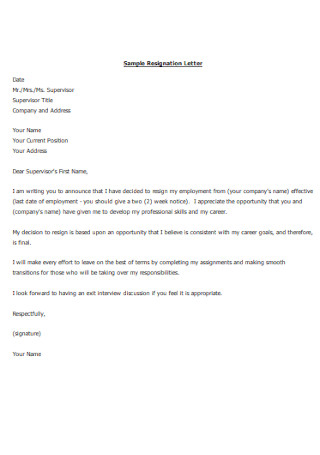
Best Official Resignation Letter
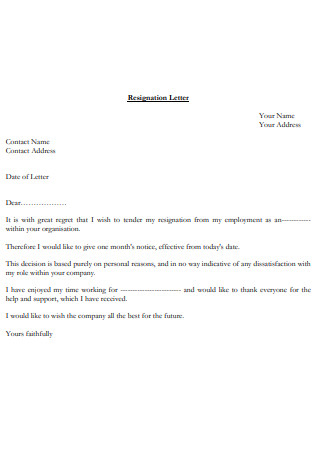
Official Resignation Letter
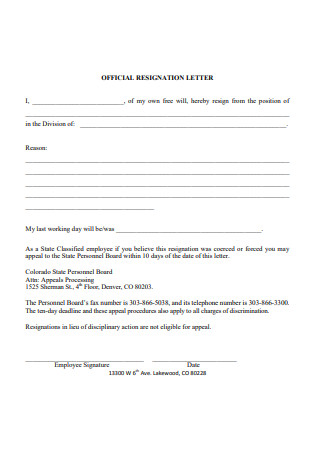
HR Official Resignation Letter
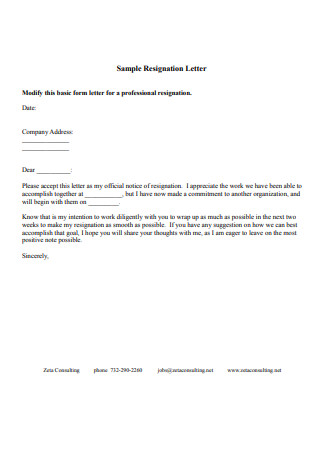
Professional Resignation Letter
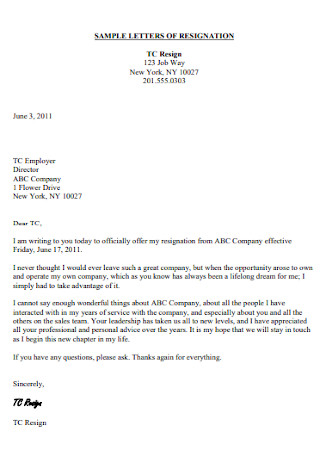
Employee Official Resignation Letter

Formal Resignation Letter Example
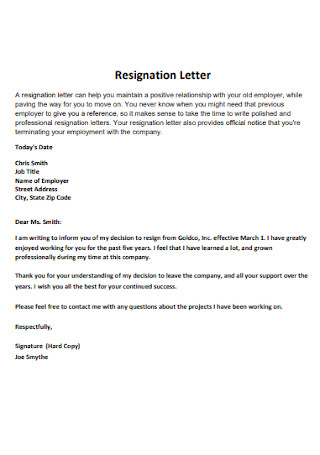
Resignation Letter Format
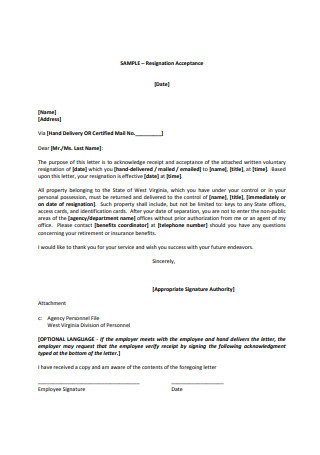
Resignation Acceptance Letter
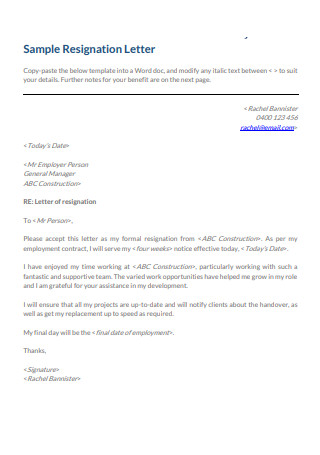
Construction Resignation Letter
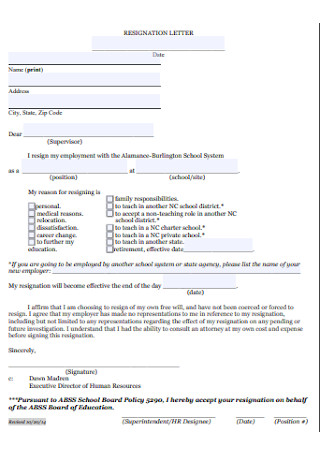
Personal Resignation Letter
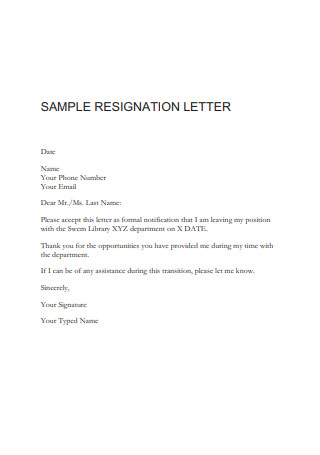
Library Resignation Letter
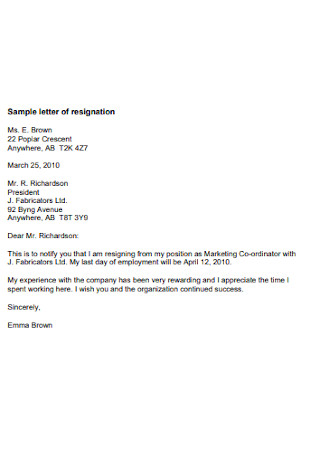
Sample Letter of Resignation
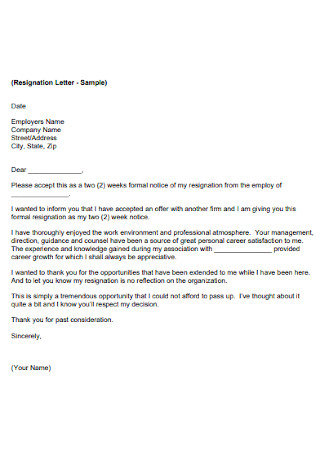
Employee Letter of Resignation
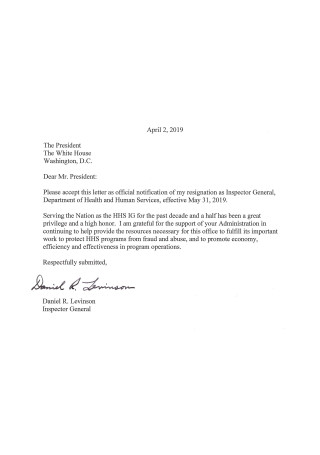
Department Resignation Letter
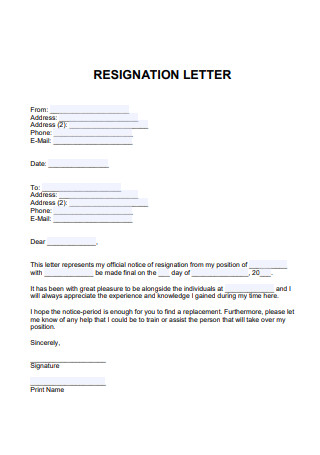
Letter of Resignation Format
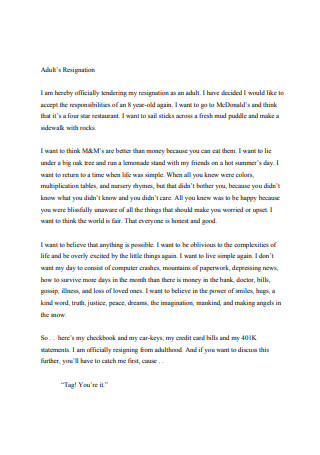
Adults Resignation Letter
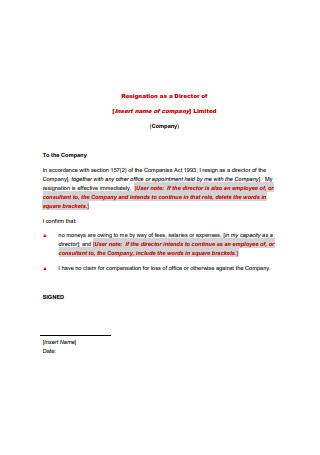
Resignation as a Director
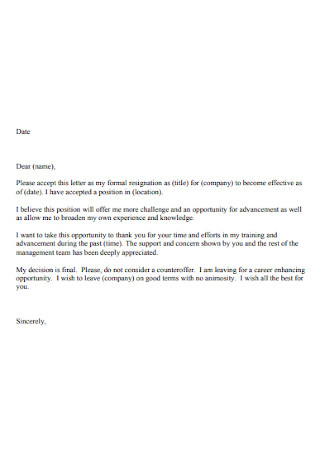
Formal Letter of Resignation
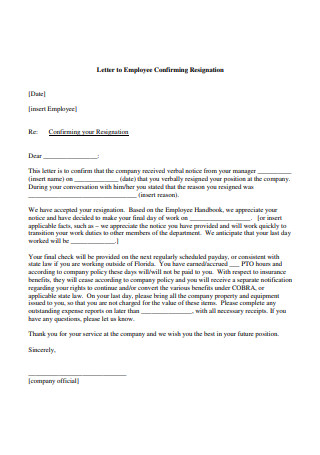
Letter to Employee Confirming Resignation
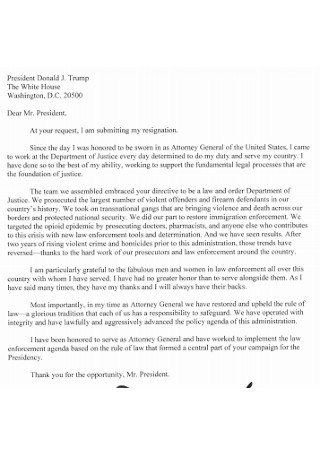
Basic Letter of Resignation
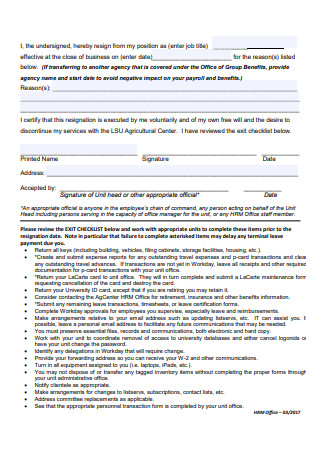
Standard Resignation Letter
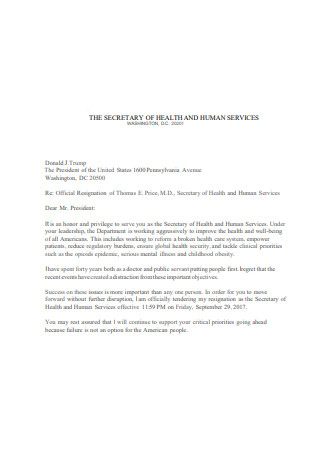
Secretary Resignation Letter
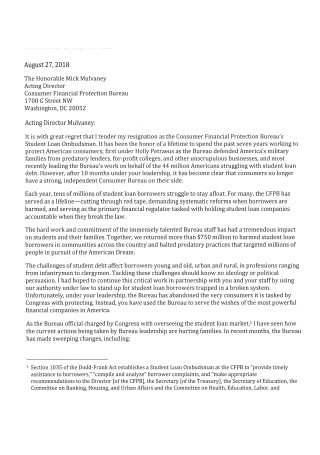
Simple Resignation Letter
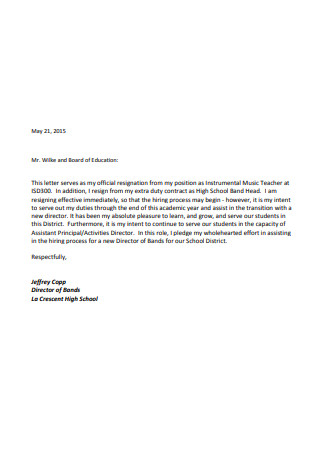
Education Resignation Letter
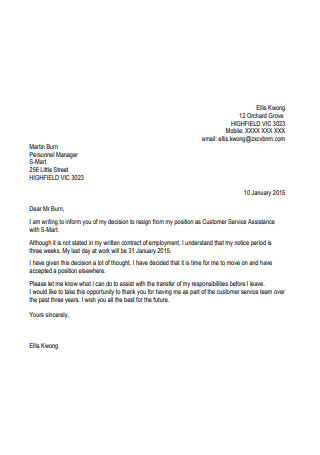
Assistance Resignation Letter
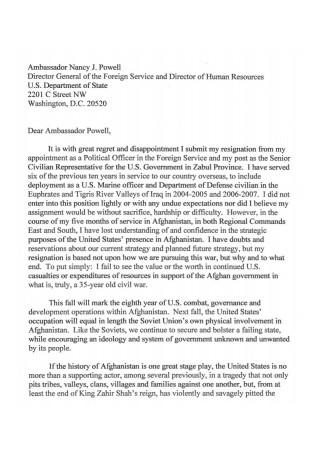
Political Resignation Letter
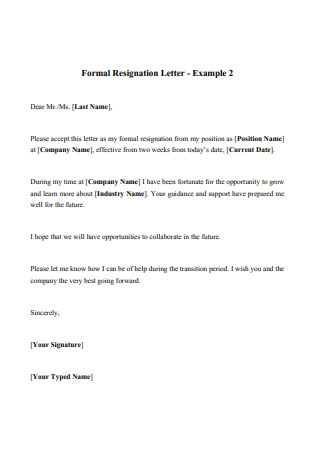
Formal Resignation Format
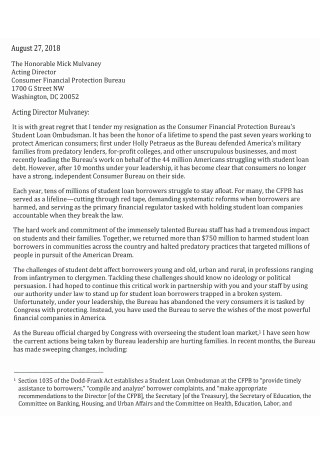
Normal Resignation Letter
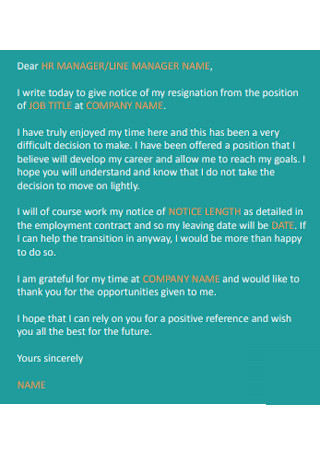
Job Resignation Letter
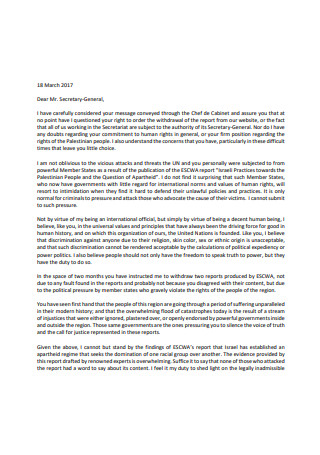
Executive Secretary Resignation Letter
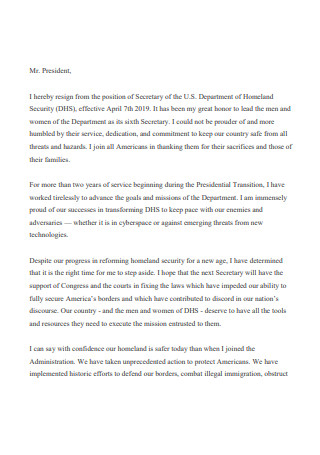
Secretary Resignation Letter Format
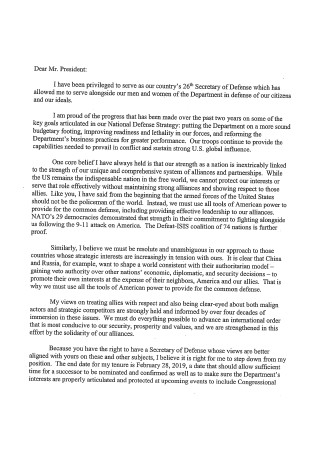
Resignation Letter
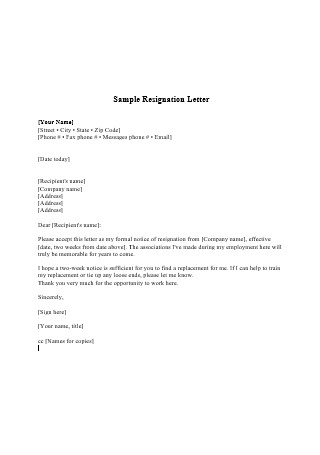
Sample Resignation Letter Format
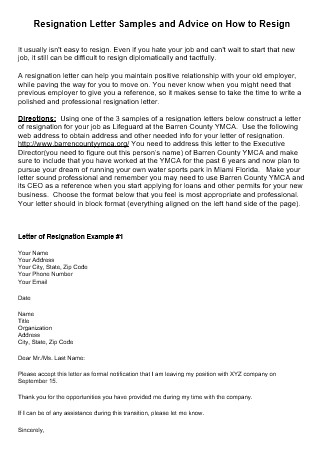
Resignation Letter Samples and Advice
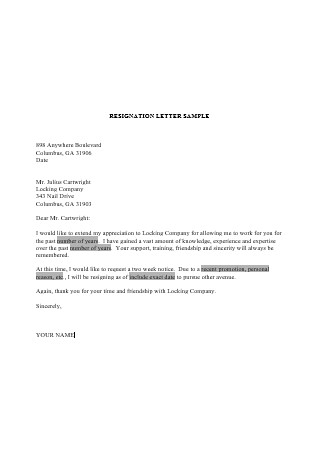
Basic Resignation Letter
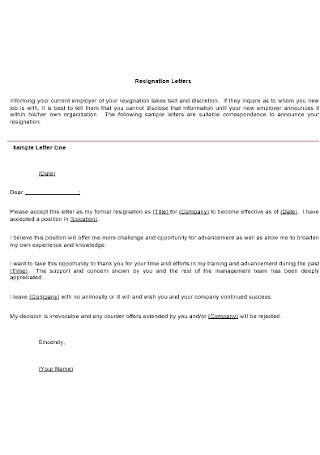
Resignation Letter Sample One
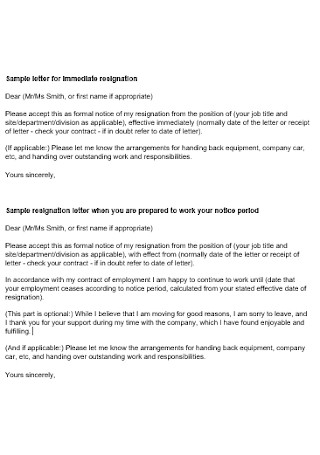
Sample Letter Immediate Resignation
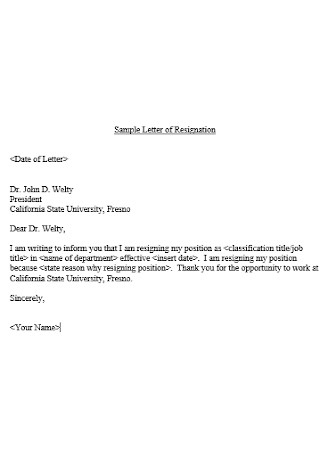
Sample Letter of Resignation
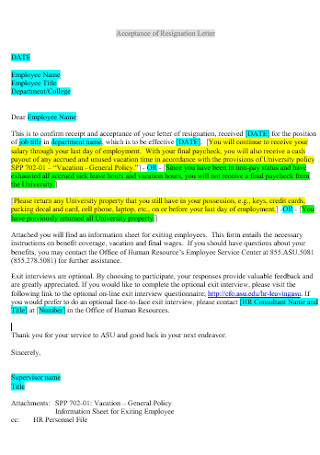
Acceptance of Resignation Letter
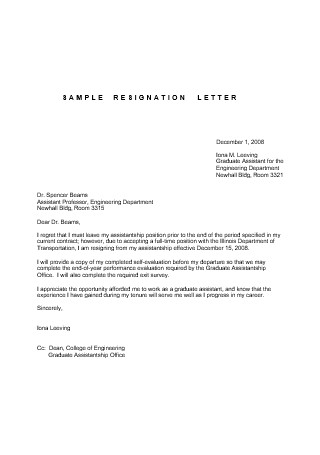
Assistance Letter of Resignation
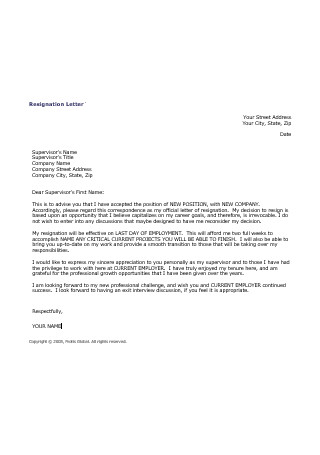
Professional Letter of Resignation
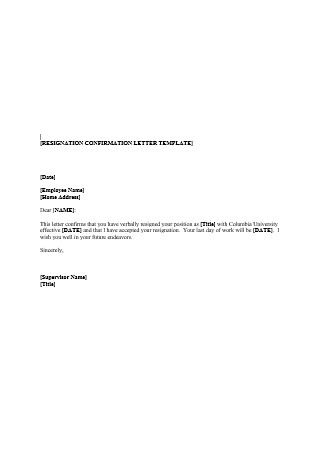
Resignation Conformation Letter
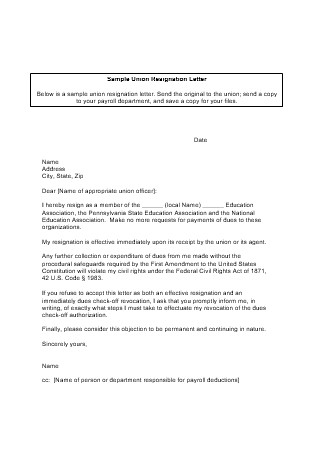
union Resignation Letter
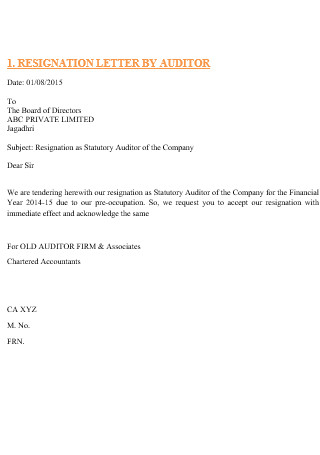
Resignation Letter by Auditor
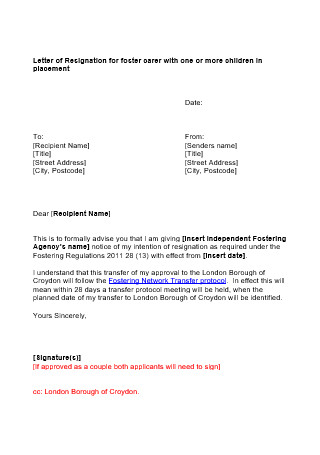
Resignation Letter for Placement
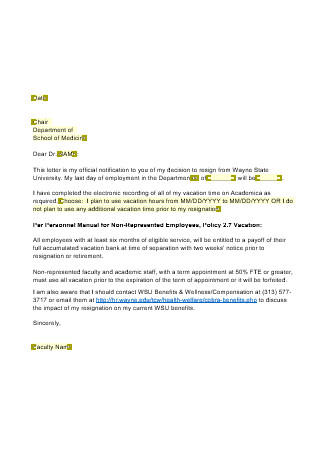
Department Letter of Resignation
What Is an Official Resignation Letter?
An official resignation letter is a verifying document that informs employers regarding an employee’s decision to resign from the company. It contains the details regarding your resignation, such as your intention for leaving the company, the date when the employee officially resigns, and an expression of gratitude.
Reuters reports that according to the US Labor Department’s monthly Job Openings and Labor Turnover Survey, the number of workers leaving their jobs on their own increased from 212,000 to 3.3 million. With a resignation letter, an employee is given an opportunity to leave on a positive note and maintain whatever positive relationships that were built with his or her previous company and its people even if he or she has voluntarily quit the job.
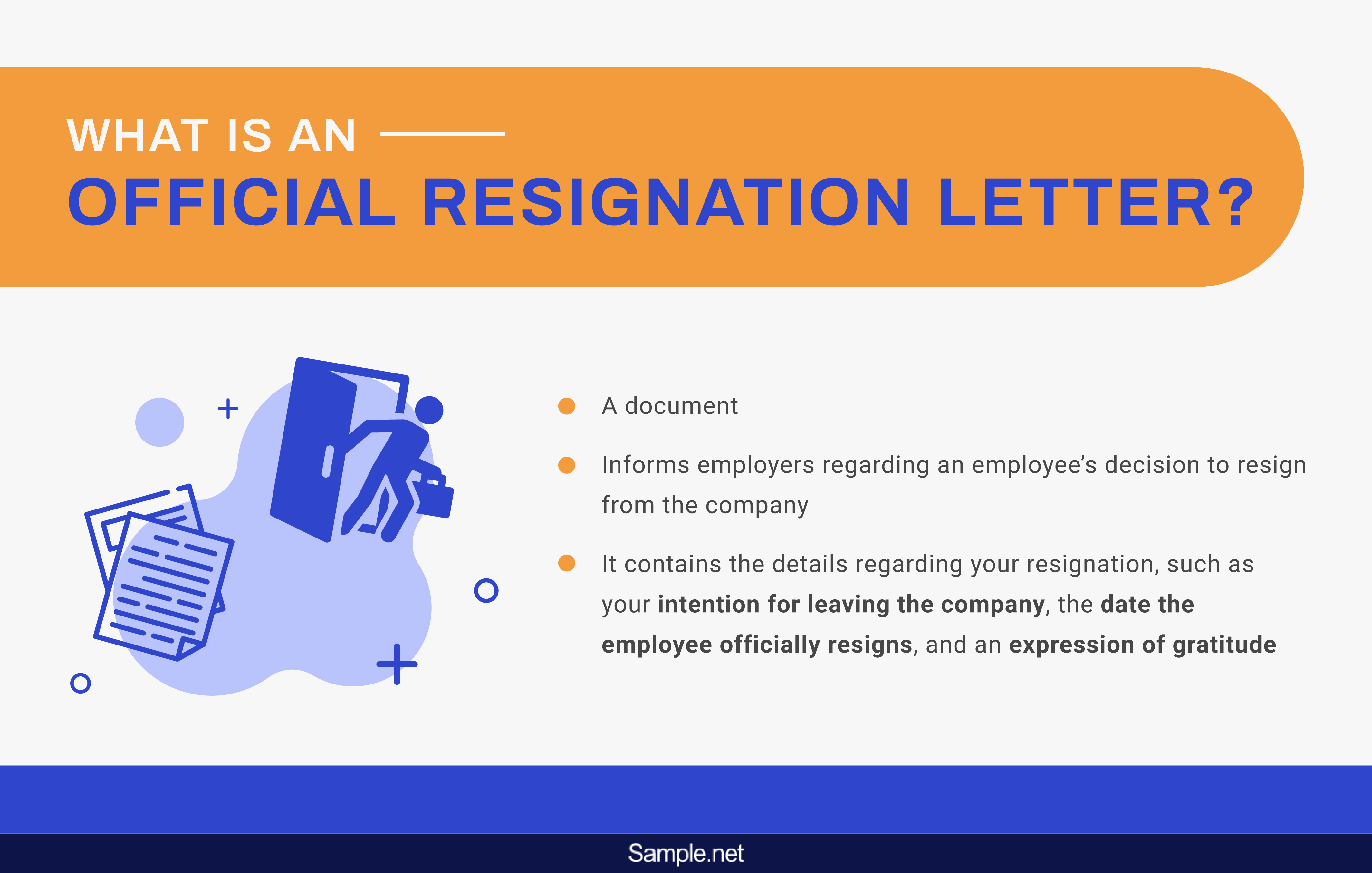
Types of Official Resignation Letters
Before you leave your post, ensure you have written an official resignation letter where you can express your intent to resign and inform the recipient of its effective date. In this case, you should already know the type of resignation letter that best suits your needs. These types are further discussed below.
Importance of Writing an Official Resignation Letter
Writing an official resignation letter is as important as leaving on good terms with your employers and your colleagues. Through this letter, you can give your thanks to your employer for the opportunities and the experiences you gained throughout your employment. Additionally, leaving without handing a resignation when required is not only unprofessional but also gives the impression that you are disrespectful and ungrateful. Resignation letters can also give room for you to further supply details that clarifies any issues as well as any other inquiries.
Not all employers would require you to send a professional job resignation letter, but if you find the need so, by all means, provide one that is effectively written. And whether your employer would admit it or not, those employees who would send a resignation letter can be something advantageous for them, especially that it keeps their files and documents organized. Resignation letters enable you to cut ties with your employer formally, and this also provides you with various advantages such as having a good referral for when you will apply for another job. Sending a resignation letter before quitting your job is a manifestation that you are a responsible individual even up to the remaining days of your employment.
How to Write an Official Resignation Letter
Thinking of handing in an official resignation letter just for the sake of it? Think twice because your resignation letter holds more value and responsibility than you think. Thus, it is important that you should know how to properly write one that can effectively communicate the necessary information you want to convey. With that, take a look at our easy-to-follow steps below on how you can come up with an effective official resignation letter.
Step 1: Start with the Proper Headings
Like any other letters, the first thing you need to write on your resignation letter are the necessary addresses and date. The date you write in your letter must be the date when you wrote the letter. The addresses include the inside address where you write the address and contact information of the receiver and the return address where you indicate your address and contact information.
Step 2: Write the Salutation
The salutation of your resignation letter is a sign of courtesy that also serves as your first formal greeting to the receiver of the letter. This part of the letter also sets the tone of your letter, so if you want to ensure that you greet in a formal and professional tone, make sure you know what to write. Most salutations start off with “Dear + Sir/Madam + his/her family name”; for example, Dear Mrs. De la Cruz. Since an official resignation letter is a formal letter, end it with a colon (:) after the last name instead of a comma (,).
Step 3: Write the Introduction
The body of your official resignation letter consists of three paragraphs. The first paragraph, which is the introductory part of your letter, is where you lay out your intention for writing the letter and the need to write it and it also indicates the exact date when your resignation takes effect. You also express the purpose of the letter in this paragraph, which is your intent to quit your position.
Step 4: Explain and Express
The second paragraph of your letter consists of the supporting details regarding your resignation. This is where you may write down the reasons behind your resignation letter. It is also in this paragraph where you can express your gratitude to your employer.
Step 5: Conclude with an Offer
The third paragraph states your willingness and initiative to help out in the transition process. You can indicate that you can be contacted through the contact details you have noted in the return address without having to reiterate it?this serves as your conclusion.
Step 6: Add the Complimentary Close and the Signature Line
Use a complimentary close such as Respectfully Yours, Sincerely Yours, and Truly Yours to formally end your letter. Two spaces below the complimentary close should be the signature line where you write down in print your full name and signature as well as the position you hold in the company.
Step 7: Check and Edit Your Final Draft
Any mistake can lead to miscommunication. So before you print or hand in your official resignation letter, make sure you have thoroughly checked its entire contents to avoid confusion. You can ask someone to check your final draft for you if you have already checked your work and haven’t noticed any grammatical mistakes and spelling errors.
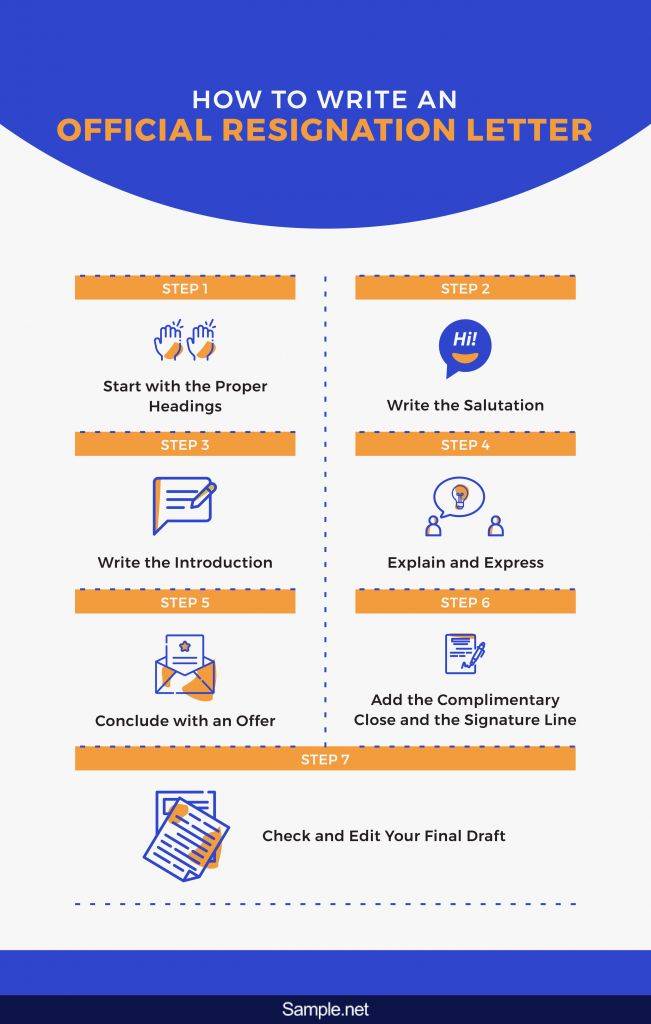
The Dos and Don’ts of an Official Resignation Letter
No matter how eager you are to move on to the next step of your career, do not fail to amicably close the doors of the job position you’re leaving behind. Handing in an official resignation letter is the best way to end this chapter of your life. But before you start composing your resignation letter, take a look at the following dos and don’ts to keep you guided and to ensure that you are writing quality and well-thought-out content for your official resignation letter.
What to Do
1. Do state your intention for resigning.
When you clearly indicate your intention to resign, it will be convenient not only for you but also for your employer so he or she will no longer think that you might reconsider your decision once you are given a counteroffer.
2. Do mention your reasons for quitting.
You don’t necessarily have to write down your reasons why you are leaving the company, but it is in doing so that your employer will be given a clearer and better sense regarding your resignation. So, if your reasons revolve around accepting a job offer from another company, retirement, and the like, make sure you clearly indicate it all.
3. Do mention your willingness to help out during the transition.
If you know that the position you are quitting can be difficult to fill or handle, you can mention in your resignation letter that you are very much willing to train someone on how to do your job position effectively. No one else in the company who can properly give a smooth transition other than you so if you are aware that your position is not easy to take over without guidance, your initiative to help out will be appreciated.
4. Do express your gratitude towards your employer.
It is common courtesy to express gratitude. No matter how much you want to give your employer a piece of your mind before your departure, you have to resist the temptation and earn that lasting impression as someone who was ungrateful. It is already a given that positive experiences are something you can be thankful for; however, negative experiences are also something you can be thankful for, especially if you have learned something valuable out of it.
5. Do keep your professionalism.
Leave with grace by keeping your professionalism even if you are about to quit from your current position. Even if your main reason for leaving is the working conditions of the company, you still need to indicate with the utmost respect and do not even think about ranting it tactlessly. Keeping your professionalism will also earn you a letter of recommendation from your employer.
6. Do make your content concise and brief.
Resignation letters are a type of formal letter so, as much as possible, keep your content concise and brief as possible and make no room for any long-winded narrative where you narrate unnecessary details regarding your decision to resign.
7. Do keep things positive.
Regardless of your reasons for resigning, the tone of your official resignation letter should be positive. Make it a goal to part from your current job in good terms and maintain the professional network you have built. Always remember that your resignation letter will play an important role in your personnel so if you write negative things in it, it will also result in a negative effect in the future when you are applying for other jobs.
What Not to Do
1. Don’t feel compelled to write down your reasons for leaving.
There are instances where it cannot be helped, but an employee would feel less than congenial towards the company he or she is resigning from. If this is your case, then do not feel compelled to cite all the reasons for quitting your job. Apart from the fact that doing so is optional, there is also a tendency where you can’t help but give your employer a piece of your mind. So no matter what or how you feel, you can never go wrong in leaving on good terms.
2. Don’t promise anything you can’t commit.
Even if you care for the company and that you are very much willing to help out during the transition process, some unavoidable instances. When the training period for your new job is about to start, your presence will surely be required by then that you can no longer accommodate your previous employer whenever they need your help. This is why you need to indicate that no matter how willing you are to help, you need to indicate that there you have limitations.
3. Don’t brag about your new job.
Bragging generates resentment among your soon-to-be ex-colleagues, including your employer. As much as you are happy and excited about your new job, never brag about it. There is no valid reason why you should make your employer and colleagues feel bad, upset, or uncomfortable about your departure. Just move on to your new job with humility, offer them your support, and thank them for the experience.
4. Don’t speak negatively about anyone.
You might view your resignation letter as a means for you to communicate with your employer. However, your letter shouldn’t be the avenue where you air out your frustrations towards your colleagues. For sure, there are other suitable and appropriate avenues for that such as assessments, evaluations, and performance reviews. Complaining about your colleagues in your resignation letter is not only inappropriate, but it also puts you in a bad light.
5. Don’t state any negative things about the company.
It is not appropriate to discuss any ill feelings, sensitive issues, or any other negative things toward the company in your resignation letter. Such matters can be properly discussed and addressed during the exit interview, where you can be honest all you want and can further expound the reasons behind your resignation. Your resignation letter is considered as a formal document to the company, and you surely wouldn’t want to have a negative letter in your permanent records.
6. Don’t write when your emotions still control you.
If your resignation is caused by misunderstandings and any other issues related to the people within the company, it is best not to write your resignation letter because your strong emotions will surely get the worst in you. Write when you are emotionally sound so you can easily focus on things that matter and write a letter that will not have a bad impression on your employer.
7. Don’t forget to proofread your output.
Do not make the mistake of not checking and editing your output before sending it out to your employer or the HR manager. You can also ask someone to review your final draft in case there are spelling errors and grammatical mistakes that you failed to notice. Apart from the technicalities, ensure that the details you incorporate in your resignation letter are correct and accurate in order to avoid confusion and miscommunication.
A well-written official resignation letter will help you keep the relationship with your soon-to-be former employees and ex-colleagues cordial and respectful. Start writing an effective letter today by using any of our official resignation letter templates that will not only hasten the process but as well as ensure you hand a job resignation letter that meets most employer’s standards. Just customize any of the resignation letter templates provided with your own content until the output suits your purpose. With the use of any of the templates and guidelines provided above, you will surely create a letter that effectively communicates the message you intend to convey.


